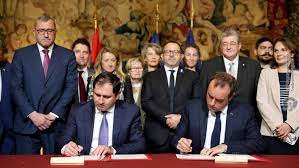
On 12 November, twenty-four French-made Bastion armored personnel carriers arrived at the Georgian port Poti to be dispatched to Armenia. This transaction is a partial outcome of the agreement between Paris and Yerevan that was announced less than a month ago, on 23 October. According to media reports, this deal stipulates France to provide Armenia with short-range surface-to-air missiles, three radar systems, fifty units of armored vehicles, and night vision goggles. Hence, in the coming weeks and months, more French weapons and military equipment are expected to be shipped to Armenia. The France-Armenia deal, however, does not only cover weapons and military equipment. It also lays down French assistance for reforming the Armenian army, including military education, training, exchange of experience, and cooperation between military academies. As such, what is on the table is not just a simple weapon sale, but a perspective of a comprehensive and long-reaching cooperation between France and Armenia in the military sphere.
Yet, nor is this all. In the last couple of weeks, there were a few more quite curious developments on the Armenia-West nexus.
On 9 November, the Chief of the General Staff of the Italian Armed Forces Admiral Giuseppe Cavo Dragone paid a working visit to Armenia. During this visit, the sides discussed issues related to “Armenian-Italian defense cooperation and regional security bilateral cooperation” and also outlined “the directions for cooperation between the Italian and Armenian Armed Forces in 2024.”
On 13 November, the inaugural Strategic Dialogue between the United Kingdom and Armenia was held in London. The joint statement issued after the meeting underlined that “UK-Armenia defence cooperation, which continues to expand with increased numbers of personnel from the Armenian military and Ministry of Defence, and police (MOIA) personnel receiving English Language training instruction, as well as places on UK senior and junior command and leadership courses, and multi-national peace-keeping and mine-awareness packages.” The statement added that “both parties looked forward to the sixth round of UK-Armenia Staff Talks later this month.”
Lastly, on 15 November, the second high-level EU-Armenia Political and Security Dialogue took place again in Brussels. Among other things, the sides discussed the possibility of non-lethal support to Armenia through the European Peace Facility (EPF).[1]
All these developments suggest that an unprecedented cooperation in the military sphere between the West and Armenia is being devised. At this point, the comprehensiveness and the depth of the cooperation are not the main point; the gist of the matter is the emergence of such a vision. In this sense, the French Ambassador to Armenia Olivier Decottignies’ statement that the French-Armenian arms deal is a signal to “NATO partners” and his words about transforming the French-Armenian relations from a humanitarian-grounded one to a strategic one are signaling. Here, it should be noted that, in fact, the signal to NATO partners has already been given by the US through several high-level meetings including the Armenian Chief of General Staff Edvard Asryan’s visit to Washington in July 2023 during which defense partnership between the US and Armenia was discussed. The US-Armenia joint military drills in Armenia in September was another one. All in all, what we see is West carving out a new ‘Armenia strategy.’ The long-time Armenophile France seems to be in the driving seat.
Then the question is why this novelty? What is the logic behind the West's new Armenia strategy?
The answer lies in the Russia containment policy of the West, the deteriorating Armenia-Russia relations, and the consequent search of Yerevan for a new patron saint. In epitome, following the 2020 Karabakh war, the long-standing and widespread perception of Russia as a security provider was significantly shattered in Armenia, and the Russia-sceptic West-leaning Pashinyan government capitalized on the anti-Russia resentments to inspirit a pro-West policy in the country. The West that pursues a policy of Russia containment policy perceived a window of opportunity in these developments to further pull Armenia off from Russia, bring it to its orbit, and institute it as another outpost against Russia.
This newly developing geopolitical game is quite likely to have some repercussions.
It can be seen that particularly the radical sections of the Armenian elite declamatorily ‘celebrate’ the French-Armenian arms deal, even in such an exaggerated manner to label it as “one of the greatest foreign policy victories” of Armenia. This mood in Armenia is prone to feed revanchist ideas against Azerbaijan and is likely to encourage some in the ruling circles to drag their feet to finalize the normalization and peace processes.
On the Azerbaijani side, it can be seen that the French-Armenia arms deal has raised concerns. Baku, perceiving the formation of an anti-Azerbaijan Western-Armenian front and worrying about that, may incline into preemptive coercive measures against Yerevan. Such a development would mean localized and short-haul armed clashes between Armenia and Azerbaijan, instability in the South Caucasus as a consequence, and more security challenges for Yerevan that the Western support could not halt at least in the short term.
Iran’s reception of the Armenia-West military cooperation is also another matter that should be factored in. For decades, Iran had supported Armenia against Azerbaijan. After the 2020 war, some signals of a change in Iran’s approach began to be seen, though Tehran, so far, has not adopted a fairly consistent policy vis-à-vis Armenia and Azerbaijan. Rather, it continued its zik-zaks. The developing Armenia-West military cooperation is quite likely to incline Tehran into revising its Armenia policy and gradually adopting an Armenia-sceptic approach. Should this happen, Armenia will find itself further isolated in the region.
As argued above, the West's Russia containment policy is the main driver of the developing Armenia-West military cooperation. Therefore, it is quite natural to expect Moscow to follow the recent developments with suspicion and resentment. As such, it is quite likely that Russian strategists are currently preoccupied with strategizing how to thwart these developments and probably to punish Yerevan for its ‘disloyalty.’ As to that, it is true that Russia is significantly weakened as a result of its war in Ukraine. Yet, it is also true that it still has teeth to bite the small and fragile Armenia. Armenia’s strong economic reliance on Russia is the main leverage of Moscow, which it may use to destabilize Armenia (for a piece on the economic relations between Armenia and Russia click here). Approximately 5000 Russian troops stationed in Armenia should also be factored in.
Lastly from a Turkish perspective, Armenia-West military cooperation is rather a complicated issue. On the one hand, Ankara would welcome attempts that would help Armenia to unleash itself from Russia and pursue an independent foreign policy. On the other hand, however, Ankara would be on thorns about a West-Russia confrontation over Armenia on its doorstep in the South Caucasus. Thirdly, the real possibility of the spread of revanchist ideas in Western-pampered Armenia against Azerbaijan that would jeopardize the relative stability and the hopes for final peace in the South Caucasus is a factor that would cause apprehension in Ankara, which looks forward to the materialization of the final Armenia-Azerbaijan peace at the earliest. Lastly, for Ankara, the lead role of France in and by itself is a reason for serious reservations for the latter’s time and again proven anti-Turkish and anti-Azerbaijani obsessions.
Under these circumstances, the West-Armenia military cooperation needs to be followed and scrutinized closely. All concerned actors should address all the cons and pros of this recent development and the repercussions of Armenia turning from being a Russian satellite to being a Western bastion.
*Photograph: Ministry of Defence of the Republic of Armenia
[1] Established in March 2021, EPF https://fpi.ec.europa.eu/what-we-do/european-peace-facility_en is an "off-budget funding mechanism for EU actions with military and defence implications…It allows the EU to support partners on a global level, either bilaterally or through international or regional organisations…Through the EPF, the EU has the possibility to provide military equipment to increase its partners' security and defence capacity." The total budget of the EPF for the period 2021-2027 is more than 12 billion Euros. It is important to note that the "EPF https://www.eeas.europa.eu/eeas/european-peace-facility_en can provide all kind of support related to military and defence matters that are not funded by the EU Budget," meaning that the military aid to partners is no limited with defensive weaponry, but may also include offensive ones.
© 2009-2025 Center for Eurasian Studies (AVİM) All Rights Reserved
No comments yet.
-
 ONGOING TENSIONS IN THE SOUTH CAUCASUS
ONGOING TENSIONS IN THE SOUTH CAUCASUS
Turgut Kerem TUNCEL 04.09.2024 -
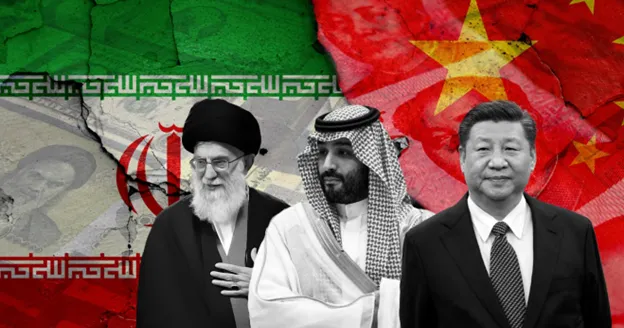 IS IRAN GETTING MORE ISOLATED?
IS IRAN GETTING MORE ISOLATED?
Turgut Kerem TUNCEL 06.01.2023 -
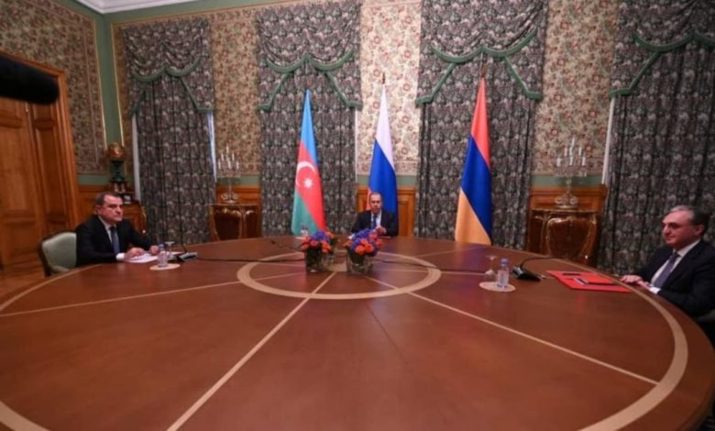 THOUGHTS ON THE PROSPECTIVE ‘PEACE TALKS’ AFTER THE RECENT ESCALATION IN KARABAKH
THOUGHTS ON THE PROSPECTIVE ‘PEACE TALKS’ AFTER THE RECENT ESCALATION IN KARABAKH
Turgut Kerem TUNCEL 12.10.2020 -
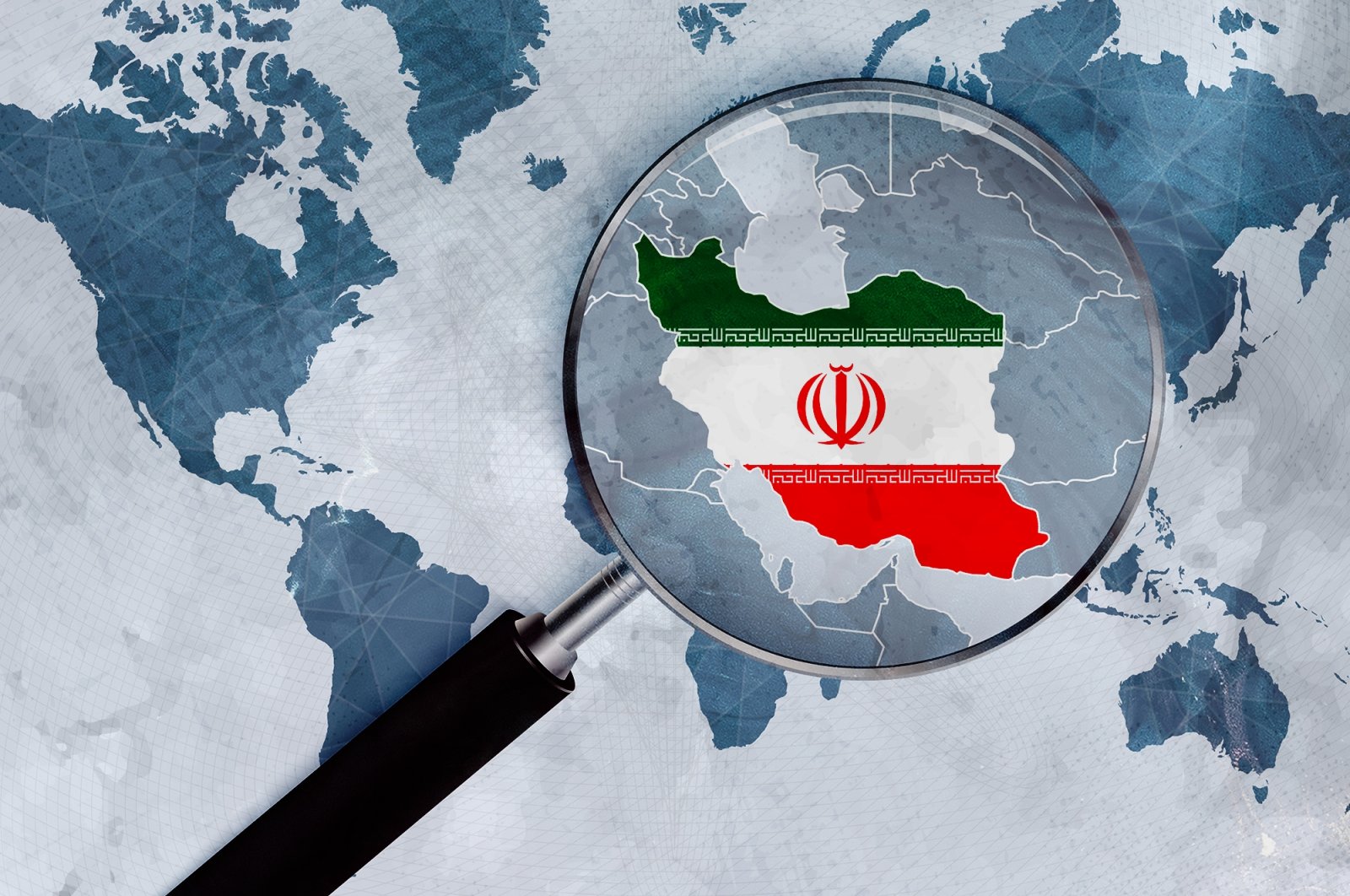 IRAN'S ACQUIESCENCE FOR RECONCILIATION AND THE SOUTH CAUCASUS
IRAN'S ACQUIESCENCE FOR RECONCILIATION AND THE SOUTH CAUCASUS
Turgut Kerem TUNCEL 16.03.2023 -
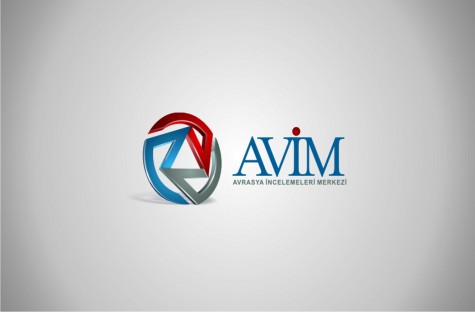 A RUSSIAN SOLDIER’S MULTIPLE KILLINGS IN ARMENIA
A RUSSIAN SOLDIER’S MULTIPLE KILLINGS IN ARMENIA
Turgut Kerem TUNCEL 19.01.2015
-
 WHAT IS THE GOAL BEHIND THE DENIAL OF TERROR?
WHAT IS THE GOAL BEHIND THE DENIAL OF TERROR?
Tuğçe TECİMER - Selenay Erva YALÇIN 24.02.2025 -
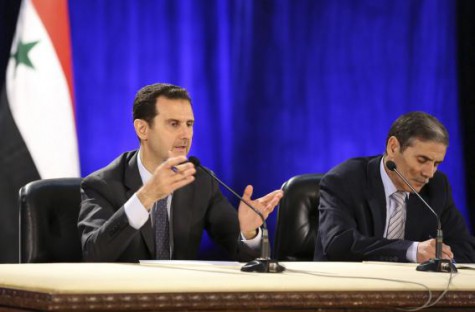 SYRIA'S ASSAD SAYS WAR TURNING IN HIS FAVOR
SYRIA'S ASSAD SAYS WAR TURNING IN HIS FAVOR
Hande Apakan 13.04.2014 -
 APEC LIMA SUMMIT
APEC LIMA SUMMIT
Seyda Nur OSMANLI 28.01.2025 -
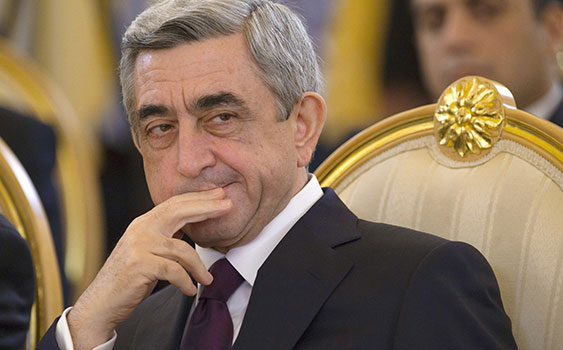 ANOTHER NUMBERS GAME BY ARMENIAN DIASPORA AND ARMENIAN GOVERNMENT
ANOTHER NUMBERS GAME BY ARMENIAN DIASPORA AND ARMENIAN GOVERNMENT
Hazel ÇAĞAN ELBİR 25.09.2017 -
THE ARMENIAN LAW AND THE FRENCH CONSTITUTIONAL COURT
Ömer Engin LÜTEM 01.02.2012
-
25.01.2016
THE ARMENIAN QUESTION - BASIC KNOWLEDGE AND DOCUMENTATION -
12.06.2024
THE TRUTH WILL OUT -
27.03.2023
RADİKAL ERMENİ UNSURLARCA GERÇEKLEŞTİRİLEN MEZALİMLER VE VANDALİZM -
17.03.2023
PATRIOTISM PERVERTED -
23.02.2023
MEN ARE LIKE THAT -
03.02.2023
BAKÜ-TİFLİS-CEYHAN BORU HATTININ YAŞANAN TARİHİ -
16.12.2022
INTERNATIONAL SCHOLARS ON THE EVENTS OF 1915 -
07.12.2022
FAKE PHOTOS AND THE ARMENIAN PROPAGANDA -
07.12.2022
ERMENİ PROPAGANDASI VE SAHTE RESİMLER -
01.01.2022
A Letter From Japan - Strategically Mum: The Silence of the Armenians -
01.01.2022
Japonya'dan Bir Mektup - Stratejik Suskunluk: Ermenilerin Sessizliği -
03.06.2020
Anastas Mikoyan: Confessions of an Armenian Bolshevik -
08.04.2020
Sovyet Sonrası Ukrayna’da Devlet, Toplum ve Siyaset - Değişen Dinamikler, Dönüşen Kimlikler -
12.06.2018
Ermeni Sorunuyla İlgili İngiliz Belgeleri (1912-1923) - British Documents on Armenian Question (1912-1923) -
02.12.2016
Turkish-Russian Academics: A Historical Study on the Caucasus -
01.07.2016
Gürcistan'daki Müslüman Topluluklar: Azınlık Hakları, Kimlik, Siyaset -
10.03.2016
Armenian Diaspora: Diaspora, State and the Imagination of the Republic of Armenia -
24.01.2016
ERMENİ SORUNU - TEMEL BİLGİ VE BELGELER (2. BASKI)
-
AVİM Conference Hall 24.01.2023
CONFERENCE TITLED “HUNGARY’S PERSPECTIVES ON THE TURKIC WORLD"









